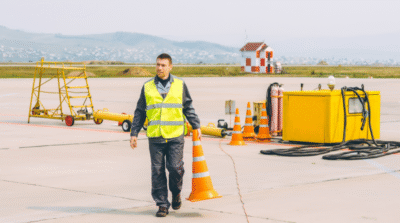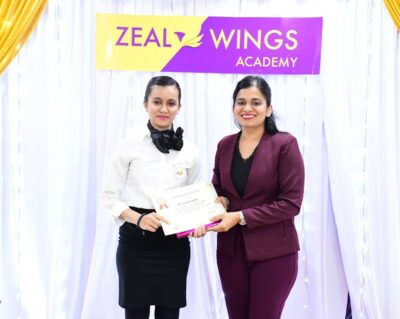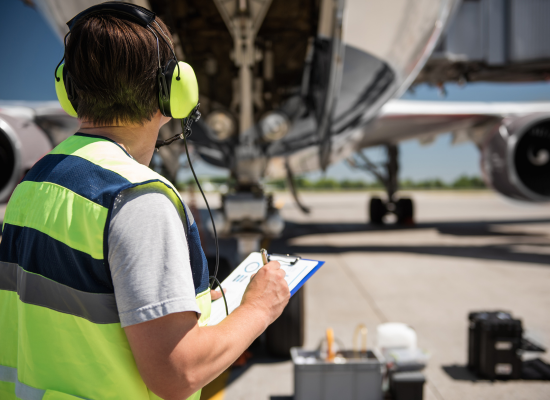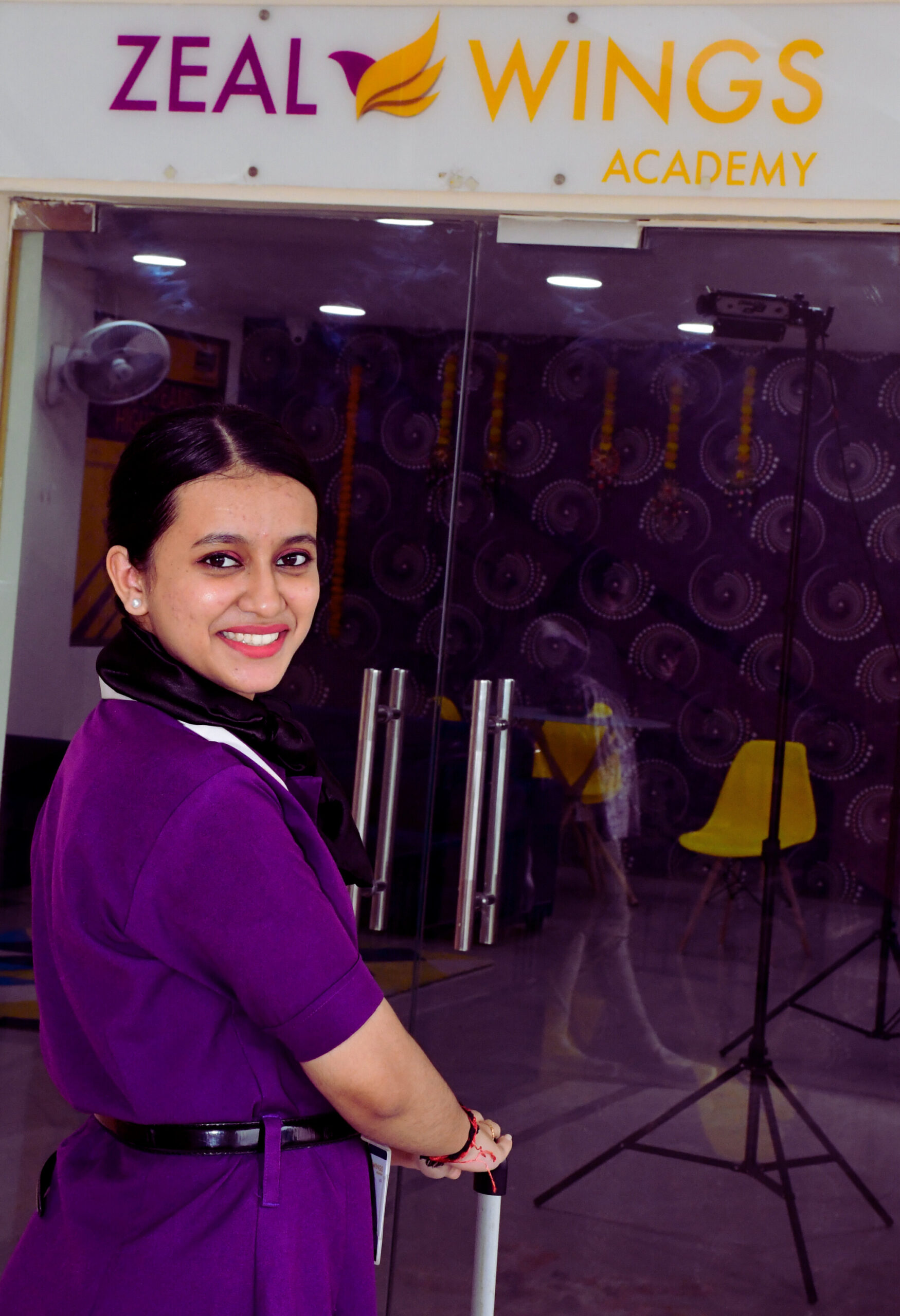table of contents
DThe aviation industry in India is soaring to new heights, and with it comes a surge in opportunities for ground staff positions. If you’ve ever wondered how airports recruit ground staff or what it takes to break into this dynamic field, you’re in the right place. The recruitment process might seem complex, but understanding the insider mechanics can significantly boost your chances of success.
The Current State of Ground Staff Recruitment in India
Indian airports are experiencing unprecedented growth. From Delhi’s IGI to Chennai’s MAA, airports across the nation are expanding operations and desperately need qualified ground staff. This boom isn’t just happening in metro cities – tier-2 and tier-3 cities are also witnessing increased air traffic, creating opportunities everywhere.
The recruitment landscape has evolved considerably. Gone are the days when a simple walk-in interview would suffice. Today’s airports demand skilled professionals who can handle everything from passenger services to complex baggage systems. This shift has made formal training more crucial than ever before.
How Airports Actually Recruit Ground Staff
Direct Recruitment vs. Third-Party Agencies
 Most major airports use a hybrid approach. They conduct direct recruitment for senior positions while partnering with specialized agencies for entry-level roles. Airlines operating at these airports also hire their own ground handling teams, adding another layer to the recruitment ecosystem.
Most major airports use a hybrid approach. They conduct direct recruitment for senior positions while partnering with specialized agencies for entry-level roles. Airlines operating at these airports also hire their own ground handling teams, adding another layer to the recruitment ecosystem.
The process typically begins with job postings on airline websites, airport authority portals, and job boards. However, here’s what most people don’t realize – a significant percentage of positions are filled through campus recruitments and industry partnerships. This is where institutions like Zeal Wings Academy play a crucial role, bridging the gap between aspiring candidates and employers.
The Hidden Recruitment Channels
Many airports maintain talent pipelines with training institutes. They prefer candidates who’ve completed structured ground staff courses because it reduces their training costs and ensures baseline competency. Chennai, being a major aviation hub, sees this trend prominently, making a ground staff course in Chennai particularly valuable for job seekers.
Skills Needed for Ground Staff: What Airports Really Want
Technical Competencies
Modern ground staff roles demand more than basic customer service skills. Airports look for candidates proficient in:
- IATA regulations and procedures
- Dangerous goods handling certification
- Computer reservation systems (CRS)
- Security protocols and AVSEC knowledge
- Multi-language communication abilities
Soft Skills That Make the Difference
While technical knowledge gets you in the door, soft skills determine your career trajectory. Airports prioritize candidates who demonstrate:
Stress Management: Airport environments are high-pressure zones. A delayed flight can create chaos, and ground staff must remain composed while managing frustrated passengers.
Cultural Sensitivity: Indian airports serve diverse passenger demographics. Understanding cultural nuances and communication styles can prevent conflicts and enhance passenger experience.
Problem-Solving Agility: No two days are identical in aviation. Whether it’s rebooking passengers during disruptions or handling special assistance requests, quick thinking is essential.
Physical Stamina: Ground staff work long shifts, often on their feet. The role involves lifting baggage, walking extensive distances, and working in varying weather conditions.
The Ground Staff Interview Process Decoded
Initial Screening
The ground staff interview process typically starts with application screening. Recruiters filter candidates based on educational qualifications, language proficiency, and relevant certifications. This is where having completed a recognized ground staff course gives you an edge.
Written Assessment
Most airports conduct written tests covering:
- General aviation knowledge
- English proficiency
- Numerical reasoning
- Situational judgment scenarios
The questions aren’t just academic – they test practical understanding. For instance, you might encounter scenarios about handling unaccompanied minors or dealing with baggage discrepancies.
Group Discussions and Role-Playing
Airports often use group exercises to assess teamwork and communication skills. Candidates might be asked to resolve mock passenger complaints or work together on operational challenges. These exercises reveal how you collaborate under pressure.
Personal Interview
The final interview delves deeper into your motivation, career goals, and cultural fit. Interviewers assess whether you understand the demanding nature of aviation work and can commit to irregular schedules, including nights, weekends, and holidays.
Medical and Background Checks
Aviation security requirements mandate thorough background verification and medical fitness assessments. This process can take several weeks, so patience is crucial.
Ground Staff Duties and Responsibilities: Beyond the Basics
Passenger-Facing Roles
Check-in counters, boarding gates, and information desks form the visible face of ground operations. Staff here handle:
- Ticket verification and seat assignments
- Baggage check-in and weight restrictions
- Security screening assistance
- Special service coordination (wheelchairs, unaccompanied minors)
Behind-the-Scenes Operations
Many ground staff work in areas passengers never see:
- Baggage sorting and loading
- Aircraft marshalling and ground equipment operation
- Cargo handling and documentation
- Fuel coordination and aircraft cleaning
Emergency Response
All ground staff receive emergency response training. During incidents, they coordinate evacuations, provide first aid, and liaise with emergency services. This responsibility underscores why airports are selective in their hiring process.
Regional Opportunities: Focus on Chennai and South India
Chennai’s aviation sector offers unique advantages. The city serves as a gateway to Southeast Asia and hosts major airline operations centers. Opportunities extend beyond airport roles to airline headquarters, maintenance facilities, and cargo operations.
The demand for qualified ground staff in Chennai has outpaced supply, creating excellent opportunities for trained professionals. A ground staff course in Chennai provides local industry exposure and networking opportunities that can accelerate career growth.
How Zeal Wings Academy Transforms Career Prospects
At Zeal Wings Academy, we understand the evolving recruitment landscape because we work directly with industry partners. Our comprehensive training  programs don’t just teach aviation basics – they prepare students for real-world challenges they’ll face in airport environments.
programs don’t just teach aviation basics – they prepare students for real-world challenges they’ll face in airport environments.
Our placement assistance goes beyond job referrals. We conduct mock interviews, provide industry insights, and maintain ongoing relationships with hiring managers at major airports. This approach has helped hundreds of students secure positions at leading airlines and airports across India.
The academy’s industry connections mean students often hear about opportunities before they’re publicly advertised. This insider advantage, combined with thorough preparation, significantly improves placement success rates.
Preparing for Success in Ground Staff Recruitment
Building Your Profile
Start building your aviation profile early. Join industry associations, attend aviation seminars, and stay updated with sector news. Employers value candidates who demonstrate genuine interest in aviation beyond just job security.
Continuous Learning
The aviation industry constantly evolves. New technologies, regulations, and procedures emerge regularly. Successful ground staff embrace continuous learning and often pursue additional certifications throughout their careers.
Networking Strategy
Aviation is a relationship-driven industry. Building connections with industry professionals can open doors to opportunities that aren’t advertised. Participate in industry events, join professional forums, and maintain relationships with classmates and instructors.
Common Mistakes to Avoid During Recruitment
Many candidates underestimate the importance of grooming and presentation. Aviation jobs require professional appearance standards, and recruiters assess this from the first interaction.
Another frequent mistake is inadequate preparation for scenario-based questions. Practice handling difficult passenger situations, emergency procedures, and operational challenges before interviews.
Finally, don’t overlook the importance of showing flexibility regarding work locations and shifts. Airports operate 24/7, and demonstrating willingness to work unconventional hours can set you apart from other candidates.
Frequently Asked Questions
Q: What are the minimum qualifications required for ground staff positions at Indian airports?
Most airports require a minimum of 10+2 (Higher Secondary) education, with graduation preferred for supervisory roles. Additionally, candidates must demonstrate English proficiency and often need to pass medical fitness tests. Age requirements typically range from 18-28 years for entry-level positions, though this varies by airline and airport.
Q: How long does the ground staff recruitment process typically take from application to joining?
The complete recruitment process usually takes 4-8 weeks. This includes initial screening (1-2 weeks), written tests and interviews (2-3 weeks), background verification (2-3 weeks), and medical clearance (1-2 weeks). However, timelines can extend during peak hiring seasons or if additional documentation is required.
Q: Do I need prior aviation experience to get selected for ground staff positions?
While prior aviation experience is beneficial, it’s not mandatory for entry-level ground staff positions. Airports and airlines provide comprehensive training to selected candidates. However, completing a professional ground staff course significantly improves your chances of selection as it demonstrates commitment to the field and provides foundational knowledge that employers value.


